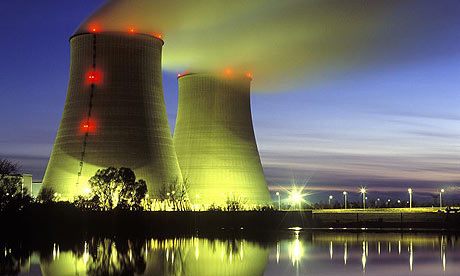 The Japanese government, which had announced a gradual phase-out of nuclear power by 2040, reversed that position and will instead develop an energy policy “with flexibility, based on tireless verification and re-examination.” The country was faced with the difficulty of replacing the 30% of electricity it gets from nuclear energy, and altering an existing strategy that would have seen that number rise to 50%. The reduction in nuclear energy usage would have come through greater reliance on renewable energy, conservation, and the use of fossil fuels, according to the original plan. Although nuclear will remain in the mix, no new plan has detailed Japan’s energy future.
The Japanese government, which had announced a gradual phase-out of nuclear power by 2040, reversed that position and will instead develop an energy policy “with flexibility, based on tireless verification and re-examination.” The country was faced with the difficulty of replacing the 30% of electricity it gets from nuclear energy, and altering an existing strategy that would have seen that number rise to 50%. The reduction in nuclear energy usage would have come through greater reliance on renewable energy, conservation, and the use of fossil fuels, according to the original plan. Although nuclear will remain in the mix, no new plan has detailed Japan’s energy future.
The original decision to reduce reliance on nuclear power was a direct response to the Fukushima disaster of 2012, but those calling for the nuclear phase-out were, in part, reacting to a feeling of mistrust towards the nuclear regulator office. That office was replaced by a new agency after criticism that it had “been drawn into a cozy, collusive relationship with plant operators and had failed to take the necessary steps to prevent a disaster like Fukushima,” according to the New York Times. However, the original phase-out plan drew criticism from business groups, who fear an increased cost in energy would reduce their competitiveness, and from communities that host the facilities, which fear a loss of the subsidies and jobs the plants bring.
The previously planned nuclear phase-out had already led to an increase in oil imports, and Japan will likely be increasing natural gas imports, including gas from the U.S. The increased reliance on fossil fuels has led to a projected additional 180 million to 210 million tons of carbon emissions this fiscal year compared with 1990, according to Time.
A new national survey in the U.S. shows 65% of respondents favoring the use of nuclear energy as one of the ways to provide electricity in the United States, with 29% opposed. However, despite that apparently favorable opinion, the US nuclear industry faces challenges, including ongoing debates over dealing with nuclear waste, relicensing older plants, and recent power plant accidents.
What lessons might this development teach U.S. policymakers, advocates, and industry? What are the implications of Japan’s turnaround for nuclear in the U.S.?